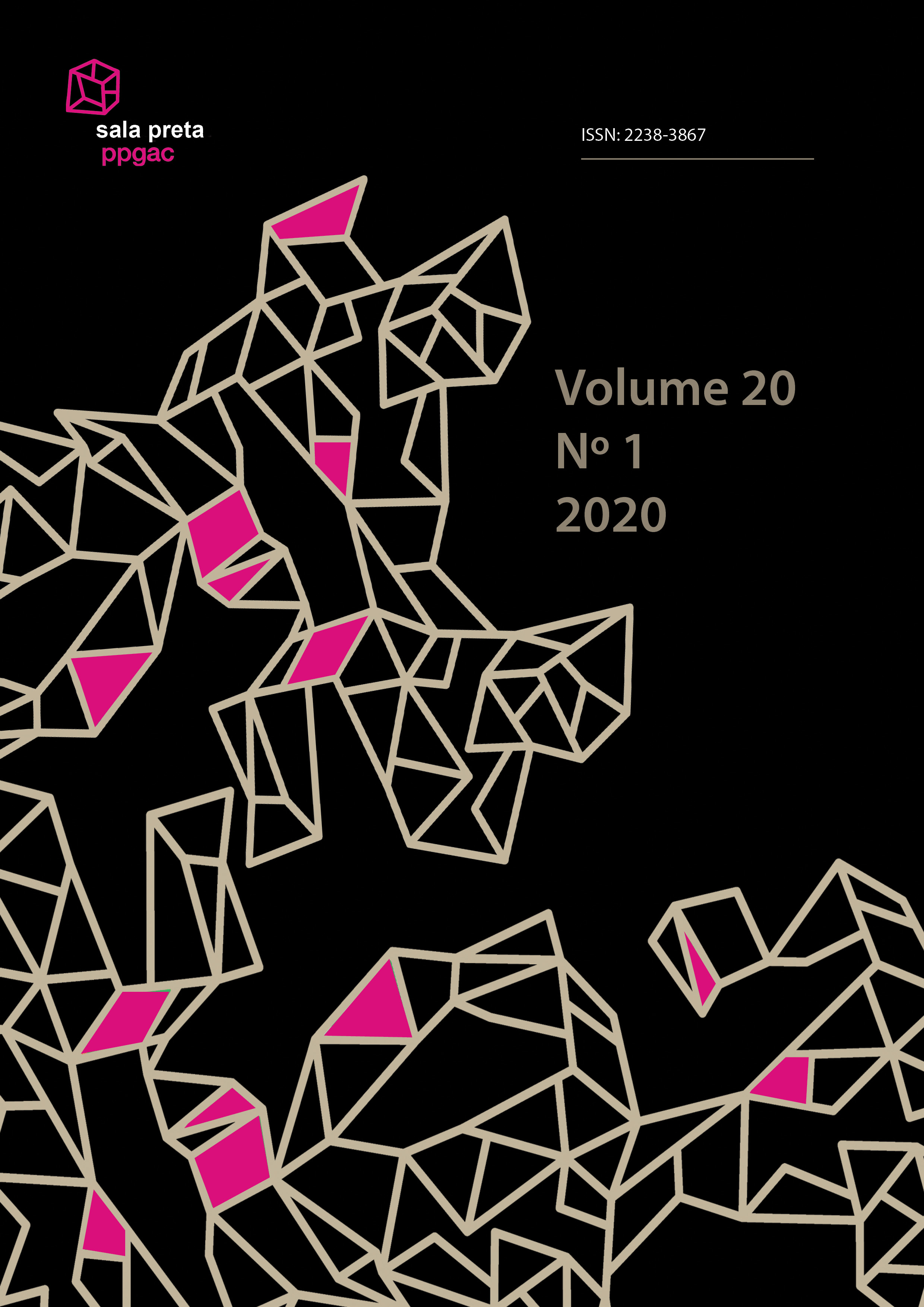Tragedy, the destiny of bones
policies of ashes and exhumation
DOI:
https://doi.org/10.11606/issn.2238-3867.v20i1p101-122Keywords:
Theatre and history, Cultural heritage, Archeology, Brazilian re-democratization process, Clandestine burial pit of PerusAbstract
By dialoguing with the historical perspective adopted by Raymond Williams in his analysis of the tragic experience, this article investigates the connections that exist between the present time and tragedy. Based on political disputes that operate based on the pair memory-oblivion, this analysis focuses on the practice of exhumation as a basis to comprehend the possibility of tragedy in contemporary times. Such practice is understood here as a procedure that allows the opening of an agonistic sphere of political tension by establishing rupture and violence regarding the deceased’s memory and traces. Thus, we bring into view episodes from the Brazilian democratic opening (1975-1985) that emphasize the dialogue between State, culture, and the production of narratives over the country. Lastly, by approximating this period to the governmental project endorsed by 2018’s election, we border on the senses of contemporary tragic experience and the structure of a political architecture that despises the gesture of exhumation for defending historical oblivion and the irreversibility of ashes.
Downloads
References
ARIÈS, P. O homem diante da morte. São Paulo: Unesp, 2014.
BÁEZ, F. História universal da destruição dos livros. São Paulo: Ediouro, 2006.
BRASIL. Lei nº 6.683, de 28 de agosto de 1979. Concede anistia e dá outras providências. Brasília, DF: Presidência da República, 1979. Disponível em: https://bit.ly/2WjHIh1. Acesso em: 7 maio 2020.
BRASIL. Política Nacional de Cultura. Brasília, DF: Ministério da Educação e Cultura, 1975.
CHAGAS, M. Memória e poder: dois movimentos. Cadernos de Sociomuseologia, Lisboa, v. 19, n. 19, p. 43-81, 2002.
FOUCAULT, M. Em defesa da sociedade: curso no Collège de France (1975-1976). São Paulo: WMF Martins Fontes, 2010.
GRÉGOIRE, H. Rapport sur les destructions opérées par le vandalisme et sur les moyens de le réprimer. Paris: Institution Publique, 1794. Disponível em: https://bit.ly/38YUhn5. Acesso em: 7 maio 2020.
HINO da Proclamação da República. In: WIKIPEDIA: the free encyclopedia. [San Frascisco: Wikimedia Foundation], 2020. Disponível em: https://bit.ly/2ZuZOi6. Acesso em: 15 jul. 2020.
PINHEIRO, M. (org.). Ditadura: o que resta da transição. São Paulo: Boitempo, 2014.
ROBERT, H. La violation des caveaux des rois dans la basilique de Saint-Denis en octobre 1793. 1793. 1 original de arte, óleo sobre tela, 54 × 64 cm.
RODEGHERO, C. S. A anistia de 1979 e as heranças da ditadura. In: FERREIRA, J.; DELGADO, L. A. N. O tempo do regime autoritário: ditadura militar e redemocratização: Quarta República (1964-1985). Rio de Janeiro: Civilização Brasileira, 2019. p. 338-389.
SÃO PAULO. Decreto nº 59.196, de 29 de janeiro de 2020. Regulamenta os serviços funerários, cemiteriais e de cremação no Município de São Paulo. São Paulo: Prefeitura de São Paulo, 2020. Disponível em: https://bit.ly/32kGdTL. Acesso em: 7 maio 2020.
SHAKESPEARE, W. Hamlet. São Paulo: L&PM, 2012.
SÓFOCLES. Antígona. São Paulo: L&PM, 1999.
TELES, E.; CALAZANS, M. 29 anos da abertura da Vala clandestina de Perus. Unifesp, São Paulo, 2019. Disponível em: https://bit.ly/2ZxllH7. Acesso em: 9 maio 2020.
TELES, E.; SAFATLE, V. (org.). O que resta da ditadura: a exceção brasileira. São Paulo: Boitempo, 2010.
WILLIAMS, R. Tragédia Moderna. São Paulo: Cosac & Naify, 2002.
Downloads
Published
Issue
Section
License
Os leitores são livres para compartilhar, copiar e redistribuir os textos publicados na Sala Preta, sem fins comerciais e em qualquer suporte ou formato, desde que sejam dados os créditos apropriados ao(s) autor(es) e à Revista. Podem também adaptar, remixar, transformar e criar a partir deste material, desde que distribuam o material derivado sob a mesma licença do original – e mantenham a menção explícita ao(s) autores e à Revista Sala Preta.
Ao submeter um artigo à Sala Preta e tê-lo aprovado para publicação os autores concordam com os termos da Licença Creative Commons Atribuição-NãoComercial-CompartilhaIgual 4.0 Internacional.


